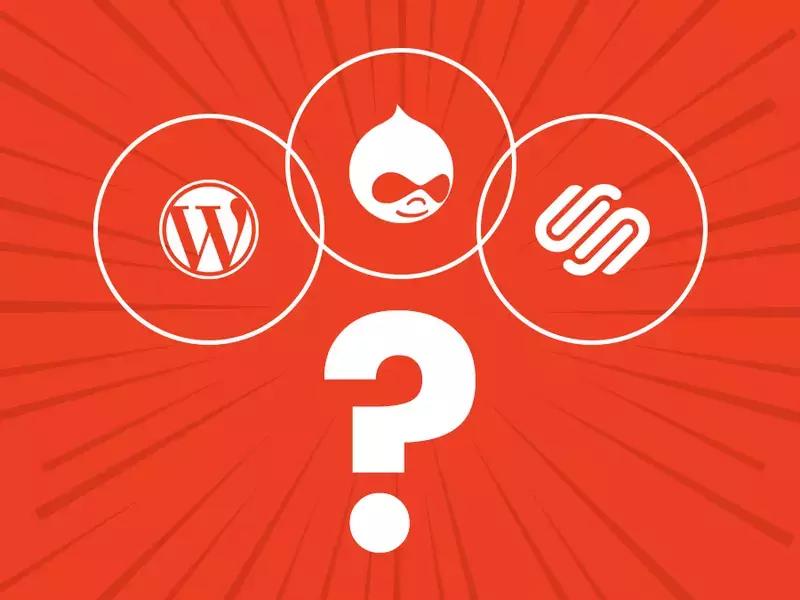In the world wide web development world, there is a unique purpose and place for each content management platform. Do you know the framework of each system and which one is best for you? Well, we do, and we’ve performed a thorough analysis of each one to cut the work out for you.
Drupal
If your web project screams large and complex, the Drupal CMS is your web whisperer. Ideal for large-scale websites that require compound layers of functionality, Drupal was built to handle a high volume of content for a high volume of users. The beauty of Drupal, too, is that it’s uber-customizable for a wide variety of industries, such as real estate for search and display listings; healthcare groups for Drupal’s security capabilities, HIPAA compliance protection and directories; larger nonprofit organizations to manage member databases; and universities to provide course catalogs. Expect Drupal to make your website impactful, with robust SEO features, and to keep your site’s content close, with more advanced user permissions and an enterprise level of security that powers the like of sites like whitehouse.gov.
Wordpress
The WordPress platform plays well with marketing websites for small- to medium-sized businesses. That’s because of its user-friendly dashboard interface, a host of tools and plugins, like Yoast and SEO, to extend your site’s capabilities, and a lineup of themes available to customize the design and layout as you wish. And WP’s robust blogging features make it a win for publications. The only drawback: WordPress security tends to be a bit weak, but, with the right developer (that’s where we come in), it can be hardened against attacks.
Squarespace
If you’re a small business – or if you want to launch a personal website – with a small budget, Squarespace is a good option to create impressive web presence. It’s called thinking outside the box for couples on a wedding site, artists and photographers showcasing a portfolio, a simple eCommerce site for small businesses and restaurants serving up a taste of what they put on the table. Selling points of Squarespace include a simple interface, low upfront investment for setup, mobile-friendly capabilities, easy update functions, and add-on features like galleries, shopping carts, blogs, and social media feeds. Design themes are a bit limited if you build the site yourself, but with the right design and development agency (ahem, that would be us) you can wind up with one hell of a good-looking site.
If you’d like to sit down with us to find out which platform is the best for your business to stand on, let's chat.
Unearth Our Day Hikes
Information Request
Please fill out the information below.
Schedule A Meeting
Please fill out the information below.
Schedule a Phone Call
Please fill out the information below.
Information Request
Please fill out the information below.
Submit a Request or RFP
Please fill out the information below.
